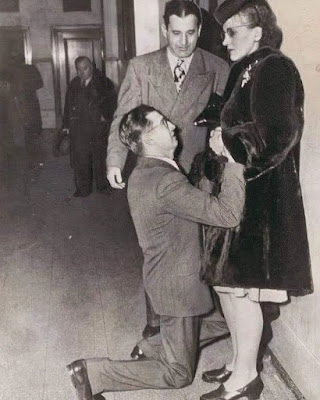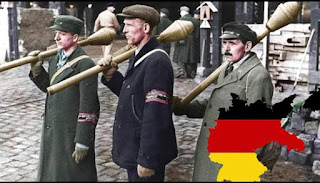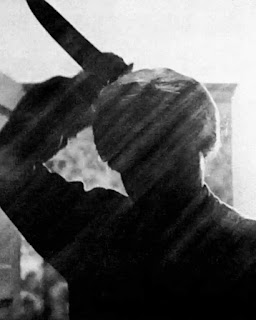THE TYPICAL MEDIEVAL PEASANT LIVED THEIR ENTIRE LIFE HAVING NEVER LEFT THEIR TOWN OF BIRTH
The typical medieval peasant lived their entire life having never left their town of birth, they almost certainly couldn’t read, they had no say over governance, they labored hard from a young age, they didn’t pick their jobs, and they likely saw no distinguishable changes from one generation to the next.
Is it possible for our modern minds to imagine ourselves in their shoes? Our hyper-individualized world today encourages the discovery and cultivation of one’s “self,” but in a world without clocks, maps, or newspapers; was an ego, sense of self, or understanding of ones place in the world possible in the way we understand it?
While we love to read of the fascinating affairs and quarrels of kings, popes, and knights from this time period, William Manchester does an excellent job at showing how these events likely had little or no effect on the common folk; they may not have even been aware of most of it (a broad and over-generalized description, but nonetheless, excellent). Names weren’t even of much importance to the average peasant:
“Noblemen had surnames, but fewer than one percent of the souls in Christendom were wellborn. Typically, the rest — nearly 60 million Europeans — were known as Hans, Jacques, Sal, Carlos, Will, or Will’s wife, Will’s son, or Will’s daughter. If that was inadequate or confusing, a nickname would do. Because most peasants lived and died without leaving their birthplace, there was seldom need for any tag beyond One-Eye, or Roussie (Redhead), or Bionda (Blondie), or the like.
Their villages were frequently innominate for the same reason. If war took a man even a short distance from a nameless hamlet, the chances of his returning to it were slight; he could not identify
it, and finding his way back alone was virtually impossible. Each hamlet was inbred, isolated, unaware of the world beyond the most familiar local landmark: a creek, or mill, or tall tree scarred by lightning.
There were no newspapers or magazines to inform the common people of great events; occasional pamphlets might reach them, but they were usually theological and, like the Bible, were always published in Latin, a language they no longer understood. Between 1378 and 1417, Popes Clement VII and Benedict XIII reigned in Avignon, excommunicating Rome’s Urban VI, Boniface IX, Innocent VII, and Gregory XII, who excommunicated them right back.
Yet the toiling peasantry was unaware of the estrangement in the Church. Who would have told them? The village priest knew nothing himself; his archbishop had every reason to keep it quiet. The folk were baptized, shriven, attended mass, received the host at communion, married, and received the last rites never dreaming that they should be informed about great events, let alone have any voice in them. Their anonymity approached the absolute. So did their mute acceptance of it.
In later ages, when identities became necessary, their descendants would either adopt the surname of the local lord — a custom later followed by American slaves after their emancipation — or take the name of an honest occupation (Miller, Taylor, Smith)...
In the medieval mind there was also no awareness of time, which is even more difficult to grasp. Inhabitants of the twentieth century are instinctively aware of past, present, and future. At any given moment most can quickly identify where they are on this temporal scale — the year, usually the date or day of the week, and frequently, by glancing at their wrists, the time of day. Medieval men were rarely aware of which century they were living in. There was no reason they should have been.
There are great differences between everyday life in I791 and 1991, but there were very few between 791 and 991. Life then revolved around the passing of the seasons and such cyclical events as religious holidays, harvest time, and local fetes. In all Christendom there was no such thing as a watch, a clock, or, apart from a copy of the Easter tables in the nearest church or monastery, anything resembling a calendar.
Generations succeeded one another in a meaningless, time-less blur. In the whole of Europe, which was the world as they knew it, very little happened. Popes, emperors, and kings died and were succeeded by new popes, emperors, and kings; wars were fought, spoils divided; communities suffered, then recovered from, natural disasters. But the impact on the masses was negligible.
This lockstep continued for a period of time roughly corresponding in length to the time between the Norman conquest of England, in 1066, and the end of the twentieth century. Inertia reinforced the immobility.
Any innovation was inconceivable; to suggest the possibility of one would have invited suspicion, and because the accused were guilty until they had proved themselves innocent by surviving impossible ordeals — by fire, water, or combat -- to be suspect was to be doomed.”
A World Lit Only by Fire: The Medieval Mind and the Renaissance: Portrait of an Age (p21-23)
Image: “Peasants Dancing Outside an Inn” oil on canvas painting by David Teniers the Younger (1645; Belgium)











Comments
Post a Comment